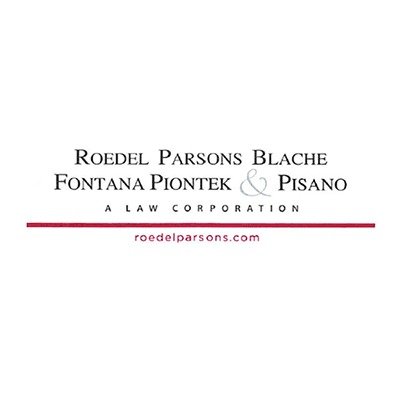Best Probate Lawyers in Baton Rouge
Share your needs with us, get contacted by law firms.
Free. Takes 2 min.
List of the best lawyers in Baton Rouge, United States
United States Probate Legal Questions answered by Lawyers
Browse our 1 legal question about Probate in United States and read the lawyer answers, or ask your own questions for free.
- My husband passed away five years ago. We have a property in th Philippines and I would like to transfer everything to my child. We are now residing in California, as U.S. citizens and my late husband a Filipino citizen.c
- How can I transfer Title on the property to my child?
-
Lawyer answer by Recososa Law Firm
Hello: We are sorry to hear about the passing of your husband, and we extend our deepest condolences. Regarding your concern, since your husband was a Filipino citizen and you are now both U.S. citizens residing in California, the property...
Read full answer
About Probate Law in Baton Rouge, United States
Probate law is a particular field of law that involves the process of handling the assets and estate of a person after they pass away. In Baton Rouge, as in the rest of Louisiana, probate is a court-supervised procedure in which a deceased person's assets are identified, debts are paid, and any remaining property is distributed to the heirs or beneficiaries.
Why You May Need a Lawyer
You may require a lawyer in numerous situations while dealing with the probate process. For starters, if the will of the deceased person is being contested, it is strongly advised that you seek the expertise of a probate lawyer. Moreover, if the estate is tarnished with significant debt, then also legal representation becomes crucial. Lastly, if the dynamics of the family are complicated with numerous beneficiaries, then having a lawyer could be instrumental in maintaining family relationships.
Local Laws Overview
Probate laws can vary widely, and Baton Rouge, Louisiana, has specific legal stipulations that might differ from other states. Louisiana employs "forced heirship," meaning that a certain portion of the estate must go to the children of the deceased unless explicitly disinherited. Additionally, Louisiana law requires that all wills be typed and signed in the presence of a notary and two competent witnesses. If a person dies without a will, Louisiana succession laws apply and determine how the property is distributed.
Frequently Asked Questions
What is the role of an executor?
The executor is the person appointed by the will to oversee the probate process. They are generally responsible for gathering and protecting the estate's assets, paying valid debts and taxes, distributing the remaining assets to the beneficiaries, and various administrative tasks.
How long does the probate process take in Baton Rouge?
The length of the probate process varies based on several factors including the size and complexity of the estate, the number of beneficiaries, and whether or not the will is contested. On average, it typically takes 9-24 months in Baton Rouge.
Do all assets go through probate?
No, not all assets go through probate. Only assets owned solely by the deceased person usually go through probate. This can exclude items such as jointly owned property, life insurance policies with a designated beneficiary, and retirement accounts naming a beneficiary.
Can I handle probate without a lawyer?
While it is possible to handle probate without a lawyer, it's often not recommended due to the complexity and serious legal implications of the probate process. A knowledgeable lawyer can help make sure that the process runs smoothly and all legal requirements are met.
What happens if there is no will?
If a person dies without a will, they are said to have died intestate. Louisiana's intestacy laws will be used to determine how the deceased person's estate should be distributed among their heirs.
Additional Resources
The Louisiana Law Help website is a helpful resource for understanding Louisiana probate laws. Additionally, the Baton Rouge Bar Association provides a Lawyer Referral Service that can help find a qualified lawyer specializing in probate law.
Next Steps
If you need legal assistance with probate, we recommend contacting a Baton Rouge probate attorney for a consultation. They can provide advice tailored to your situation, explain the probate process, and help ensure your rights and interests are protected.
Lawzana helps you find the best lawyers and law firms in Baton Rouge through a curated and pre-screened list of qualified legal professionals. Our platform offers rankings and detailed profiles of attorneys and law firms, allowing you to compare based on practice areas, including Probate, experience, and client feedback.
Each profile includes a description of the firm's areas of practice, client reviews, team members and partners, year of establishment, spoken languages, office locations, contact information, social media presence, and any published articles or resources. Most firms on our platform speak English and are experienced in both local and international legal matters.
Get a quote from top-rated law firms in Baton Rouge, United States — quickly, securely, and without unnecessary hassle.
Disclaimer:
The information provided on this page is for general informational purposes only and does not constitute legal advice. While we strive to ensure the accuracy and relevance of the content, legal information may change over time, and interpretations of the law can vary. You should always consult with a qualified legal professional for advice specific to your situation.
We disclaim all liability for actions taken or not taken based on the content of this page. If you believe any information is incorrect or outdated, please contact us, and we will review and update it where appropriate.








